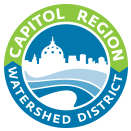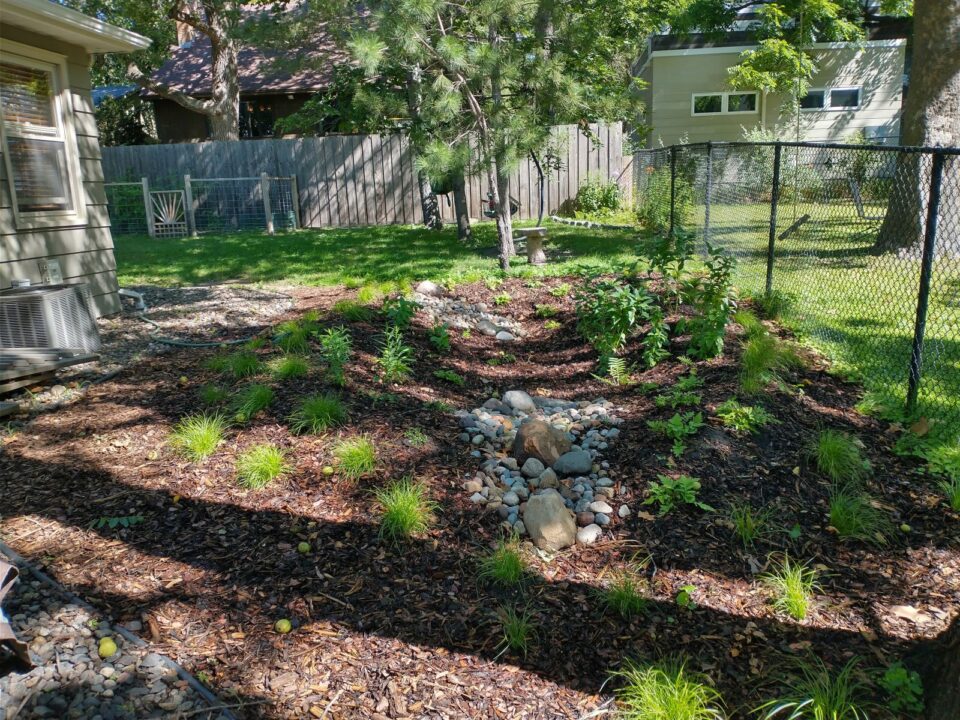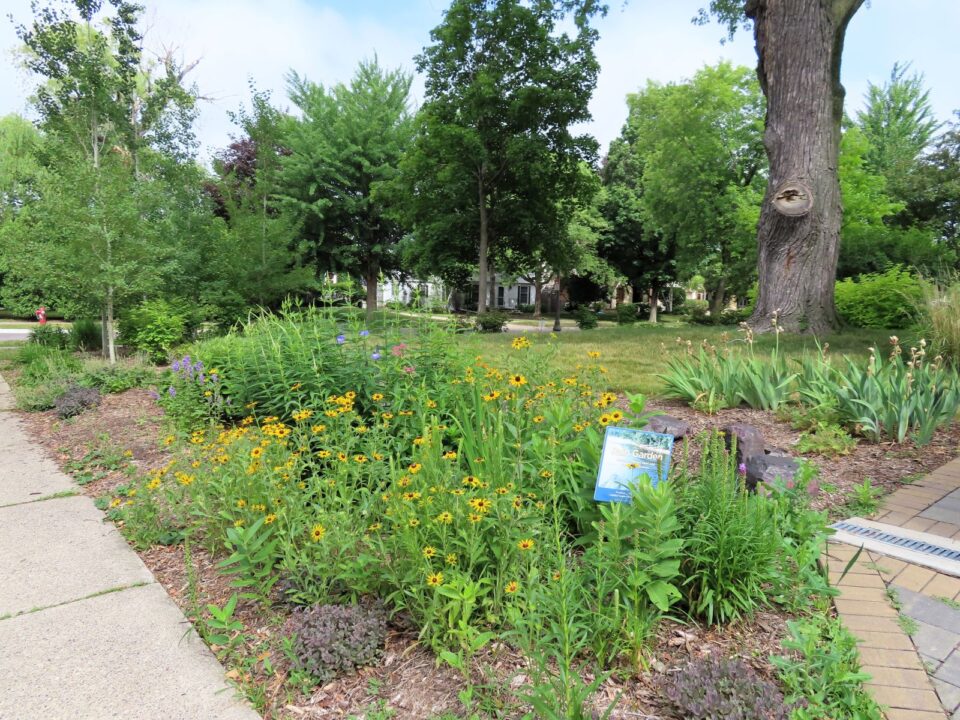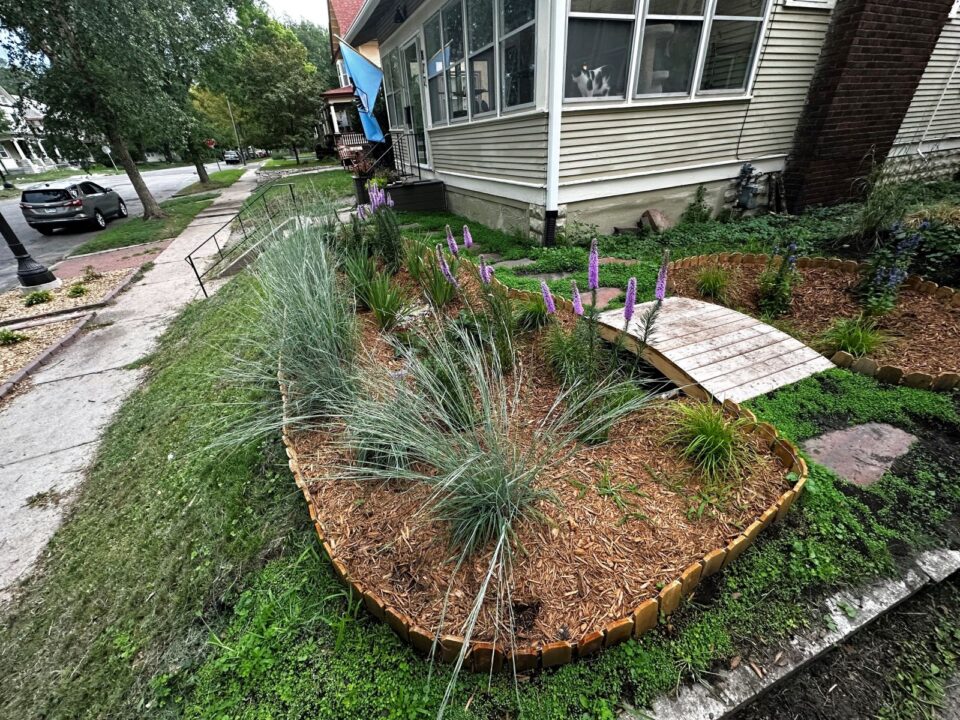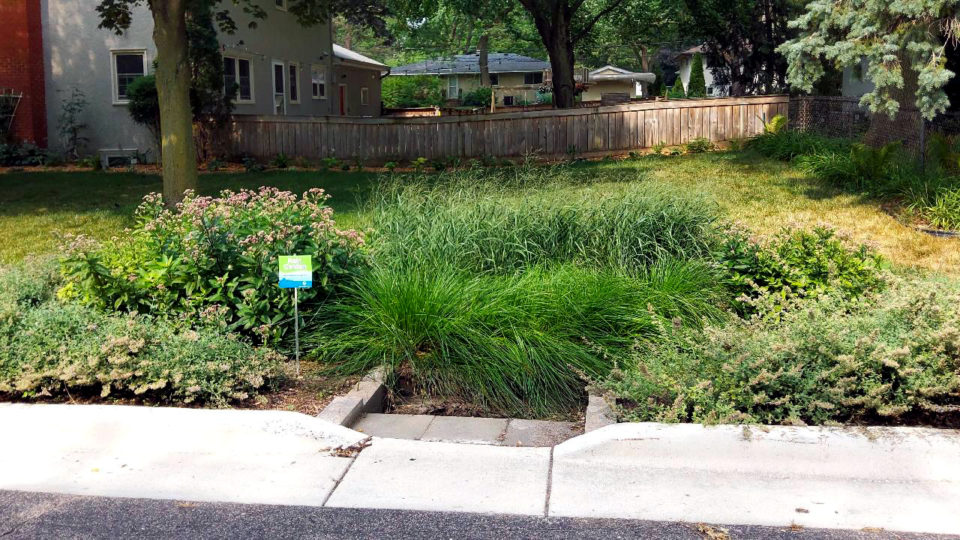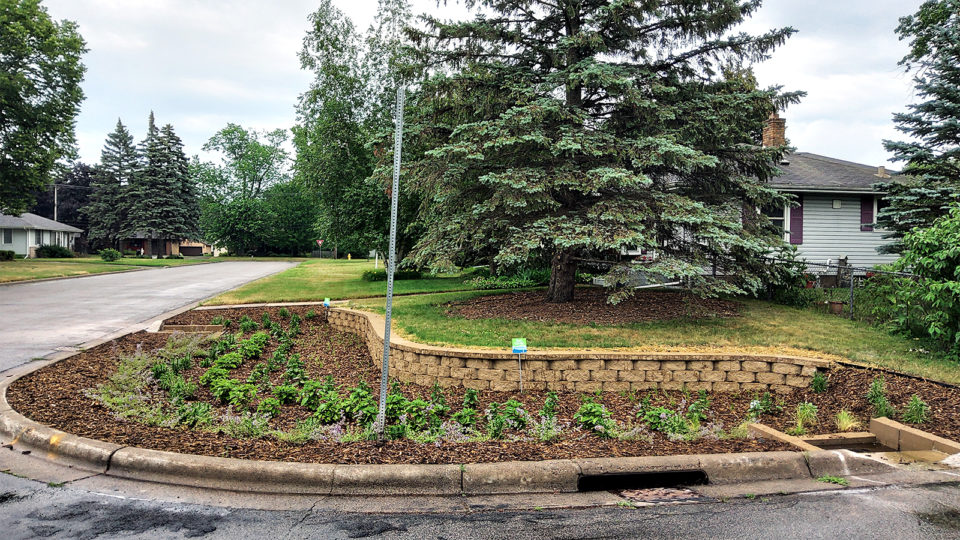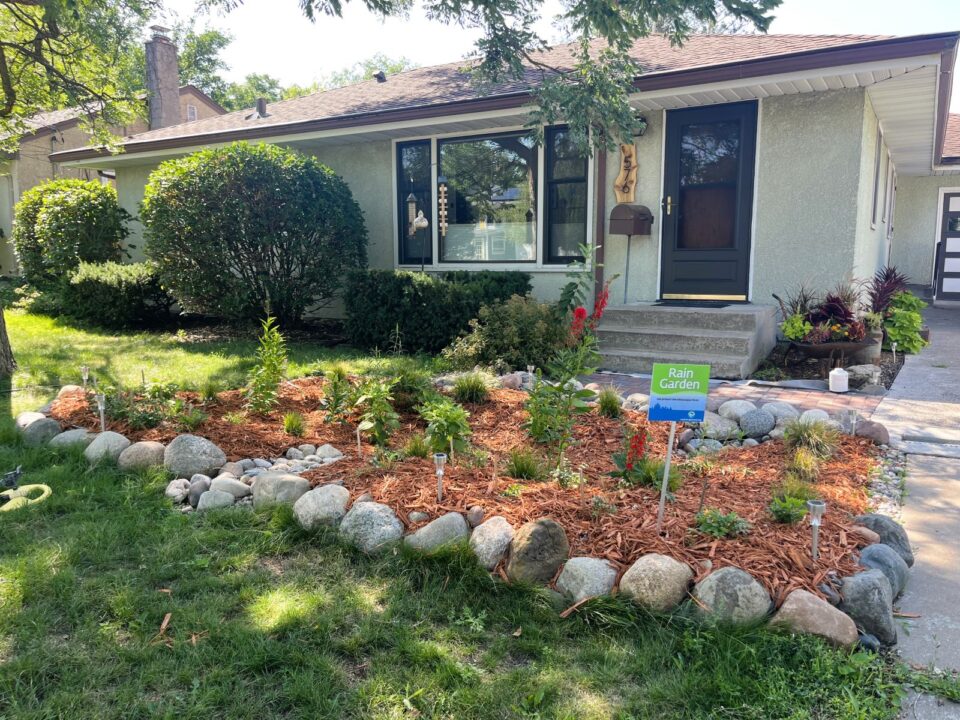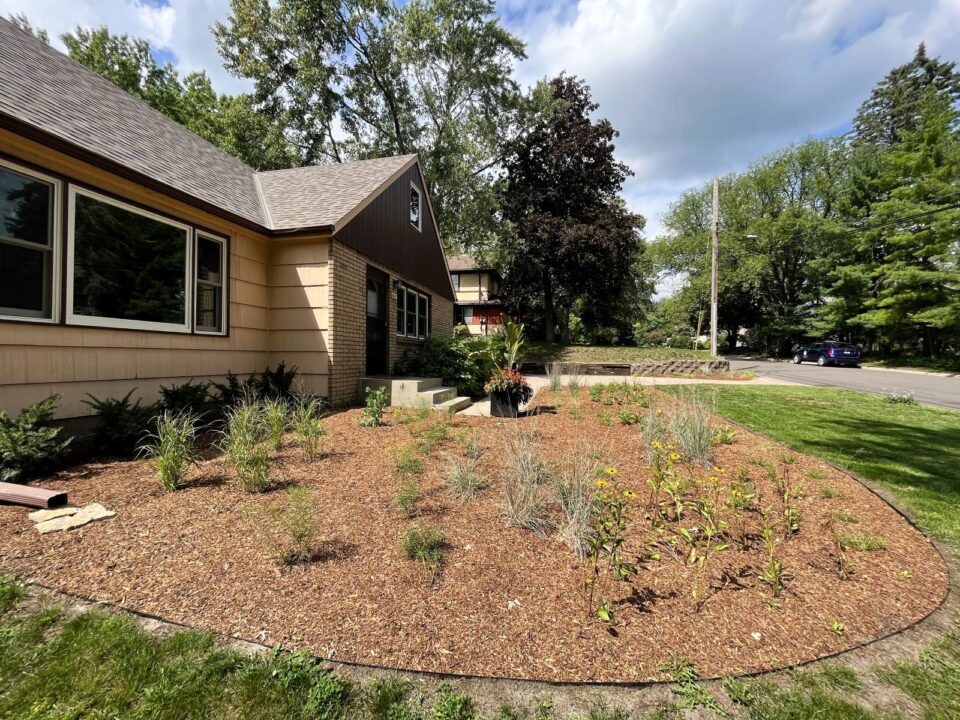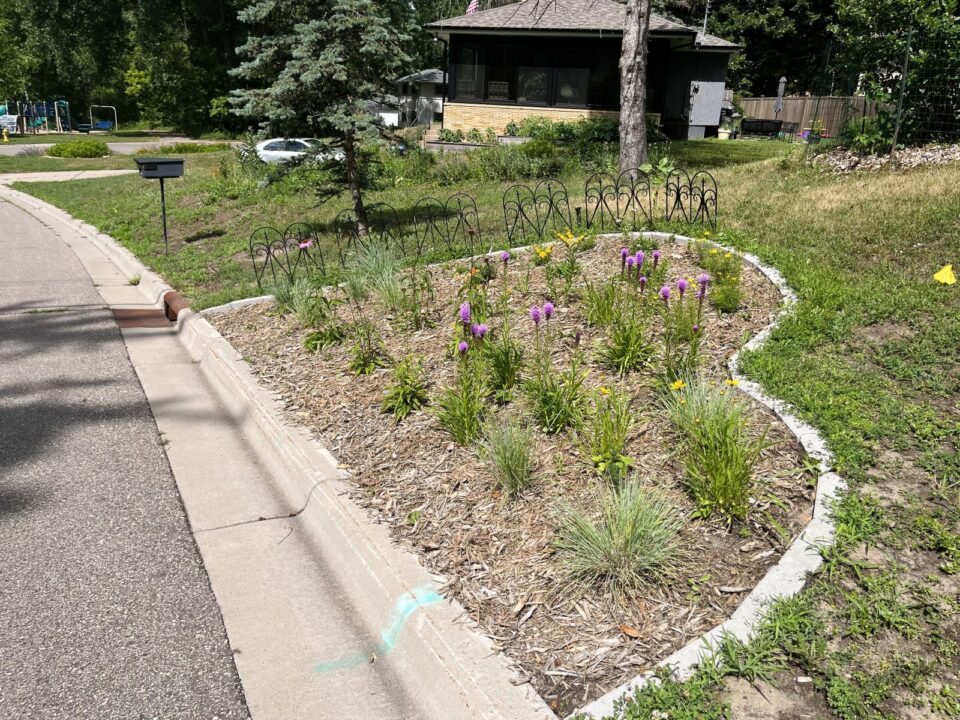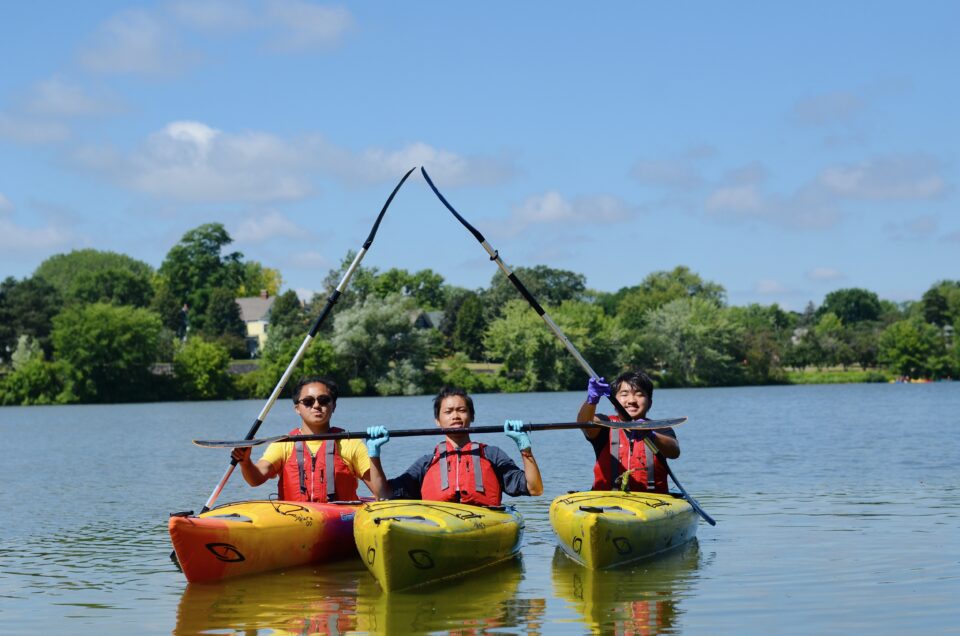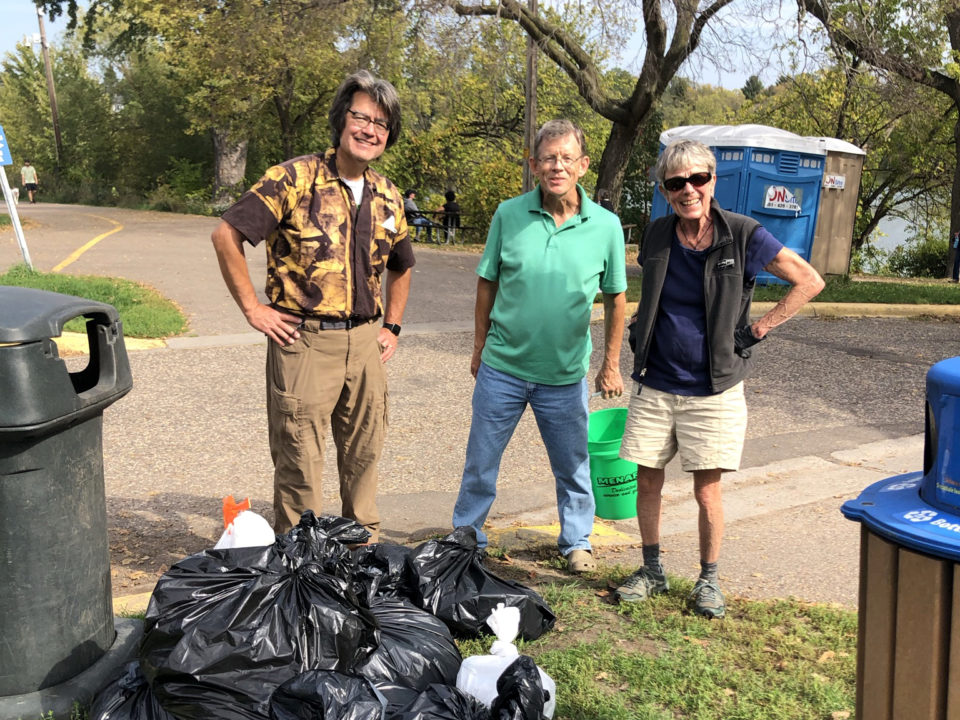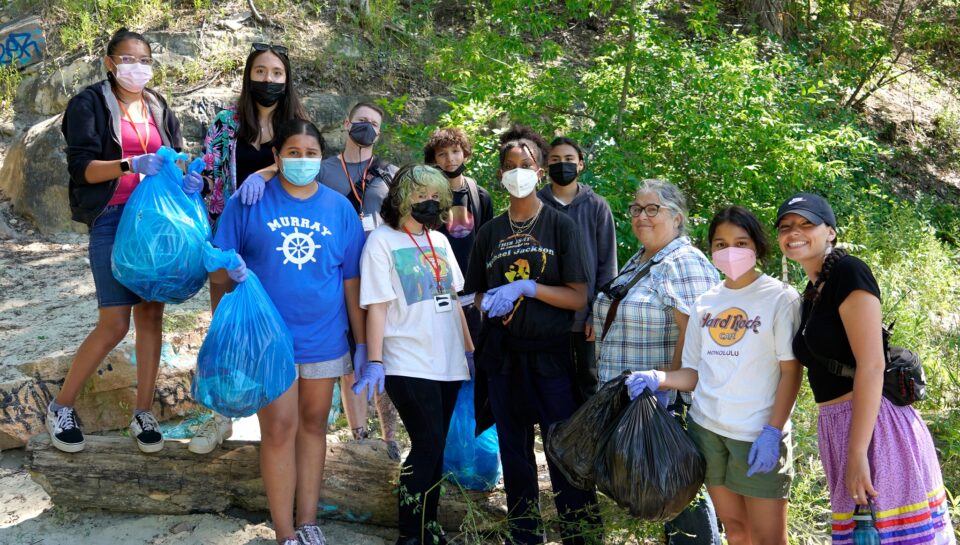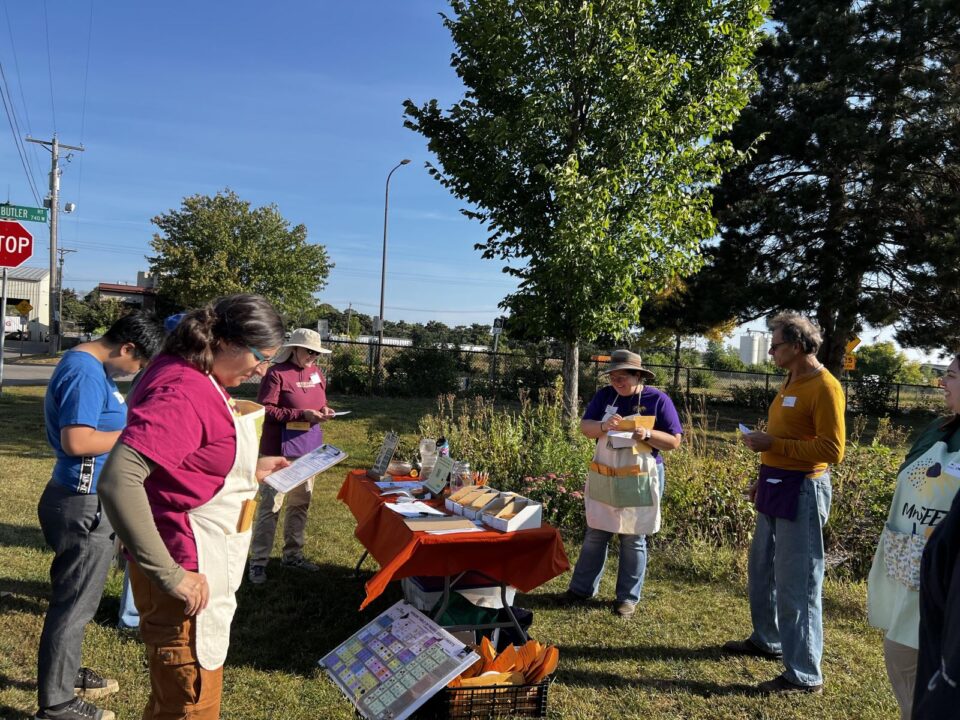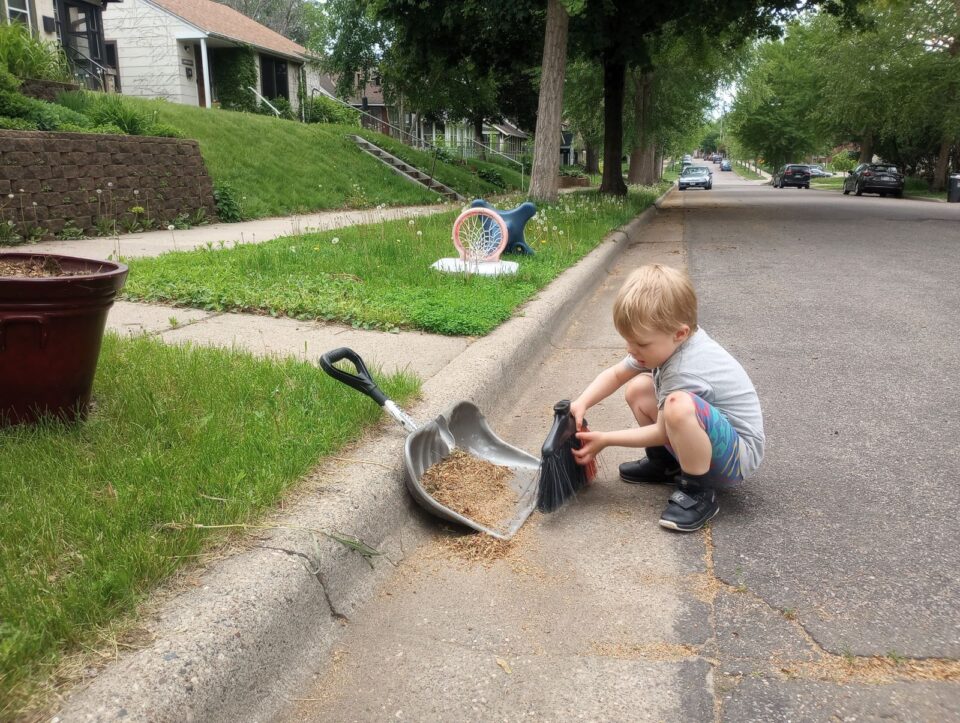Your Guide to CRWD Grants
Capitol Region Watershed District (CRWD) grant programs provide financial and technical assistance to help build and fund projects that protect local lakes and the Mississippi River and increase clean water knowledge and action.
Polluted runoff – stormwater that flows over impervious surfaces and into storm sewers – is a leading cause of water pollution in lakes and rivers, particularly in urban areas. Much of the land in CRWD is already developed and privately owned, so working with residents, non-profits, schools, businesses, and faith-based groups to build clean water projects is essential for improving water quality.
Overview of Grants Programs
Clean Water Project Grants
Clean Water Project Grants help build clean water projects that prevent stormwater pollution and promote water resource stewardship. What is a clean water project? Projects like rain gardens, rainwater reuse systems, shoreline restorations, permeable pavement, and green roofs are all considered clean water projects because they help prevent stormwater pollution and keep our waters clean.
CRWD can reimburse a percentage of eligible project costs up to the grant award amount. Grant awards typically range from $500 – $200,000, and applications are accepted year-round.
Clean Water Project Grant process
The total time from initial inquiry to a grant agreement is around four to six months.
Step 1: Review the Clean Water Project grants page, which includes grant guidelines, photos, and other information, and fill out an inquiry form.
Step 2: Two to four weeks after the inquiry form, CRWD staff will conduct a site visit to your property to map out potential projects. Spring is an excellent time for a site visit!
Step 3: Four to six weeks after a site visit, CRWD will send a clean water proposal with a list of potential projects for your site and their estimated cost.
Step 4: Review your clean water proposal and apply for a grant with your selected project(s).
Step 5: You’ll receive construction plans four to six weeks after application approval.
Step 6: Once the plans are in place, the final step before beginning your project is a grant agreement, which can take up to 45 business days, depending on the project.
Get started now by visiting the Clean Water Project Grants page.
Curb-cut Boulevard Rain Gardens
Curb-cut boulevard rain gardens collect stormwater runoff from the street via a break in the curb. CRWD manages the coordinated construction of bundled sites while working with our city partners. We’re accepting applications for the spring of 2025 curb-cut rain garden projects through October 2024.
Most potential curb-cut boulevard rain garden sites must meet these initial requirements:
- Minimum 10-foot width and 20-foot length
- Tree canopy does not extend over the site area
- Curb and gutter are present
In addition, CRWD will evaluate each site individually. This evaluation will consider slopes and drainage areas and may require a utility locate to determine if there are conflicts that may impact design or installation.
Curb-cut Rain Garden Grant process
Step 1: Review the curb cut rain garden section on the Clean Water Project grants page and fill out an inquiry form.
Step 2: CRWD conducts a site visit to determine whether the property meets the requirements for a curb-cut rain garden.
Step 3: If the site is appropriate for a curb-cut rain garden, CRWD sends a design plan.
Step 4: CRWD coordinates the construction. Staff will communicate about the planned dates. Once construction and installation are completed, CRWD sends a statement with your portion of the cost-share, payable to CRWD.
Start by visiting the Curb Cut Boulevard Rain Gardens section on the Clean Water Project Grants page.
Clean Water Project Maintenance Grants
Creating stormwater improvements is only the first step in protecting the District’s water resources. Ongoing maintenance ensures that CRWD grant projects continue to capture and clean stormwater runoff. Maintenance Grants are available for eligible Clean Water Project Grant projects. The grant awards range from $200 -$2,000 annually for the project’s life, and applications are accepted year-round for past clean water projects.
Planning Grants
Planning Grants provide financial assistance for the feasibility and design of cost-effective and innovative clean water projects that protect and improve the water quality of waterbodies within CRWD. Typical projects funded through this program include feasibility studies and engineering services to identify, prioritize, and design capital improvement projects that benefit natural resources. Planning Grants will typically provide much of the information needed to apply for construction funds through CRWD’s Clean Water Project Grants program.
Eligible applicants include public, private, and non-profit organizations working on a project in CRWD. The average grant award is $10,000 – $20,000, and applications are accepted year-round.
You can learn more on the Planning Grants page.
Native Landscaping Grants
CRWD is working to increase grant projects throughout the District, emphasizing expansion in the Saint Anthony Hill, Trout Brook, and Phalen Creek subwatersheds. Those subwatersheds are a focus area because they have fewer grant projects than other portions of the District, and they overlap with communities of historically underrepresented groups, including people of color, immigrants, younger generations, and those living in poverty.
Native Landscape Grants provide technical and financial assistance to residents, non-profits, schools, businesses, and public agencies within CRWD’s Focus Area to build native landscape projects. These projects foster the expansion of native plant communities, provide pollinator habitat, and prevent stormwater pollution from entering our lakes and the Mississippi River.
Check the Focus Area Map to see if your property qualifies. The Native Landscape Grant is a one-time award of up to $1,000 for eligible project expenses, and there is no requirement to share the cost. The total time from application to a grant agreement is about one month.
Get started now by visiting the Native Landscape Grants page.
Partner Grants
Partner Grants fund programs and projects led by community, arts, and environmental organizations, schools, faith-based groups, and cities that increase clean water knowledge and actions of residents in CRWD. 2024 Partner Grantees include 14 local organizations leading a variety of programs like urban conservation and restoration activities, native seed collection and sharing events, and lake clean-ups.
Learn more on the Partner Grants page.
Four actions to protect clean water
We’re almost to the end, and you’re still here! High five! Did a grant program or two catch your attention? We hope so! But in the meantime, here are five things you can do to protect water that don’t involve digging a garden or installing a new project.
- Clean your curb: Keep leaves and grass out of streets and gutters to stop them from being carried to nearby lakes and rivers via storm drains. Organic debris in stormwater contributes to harmful algae blooms.
- Adopt a storm drain: Visit adopt-a-drain.org/ to find a storm drain near you and volunteer to clear it of trash and debris twice a month. Join nearly 13,000 people across Minnesota who’ve removed over 700,000 pounds of debris from over 22,000 storm drains!
- Scoop the poop: Put pet waste in the trash. Rain and snowmelt can carry harmful bacteria and nutrients from waste to lakes and rivers.
- Pick up trash: Collect litter in your yard, street, and gutter before rain carries it to a storm drain, which flows to our lakes and the Mississippi River.
